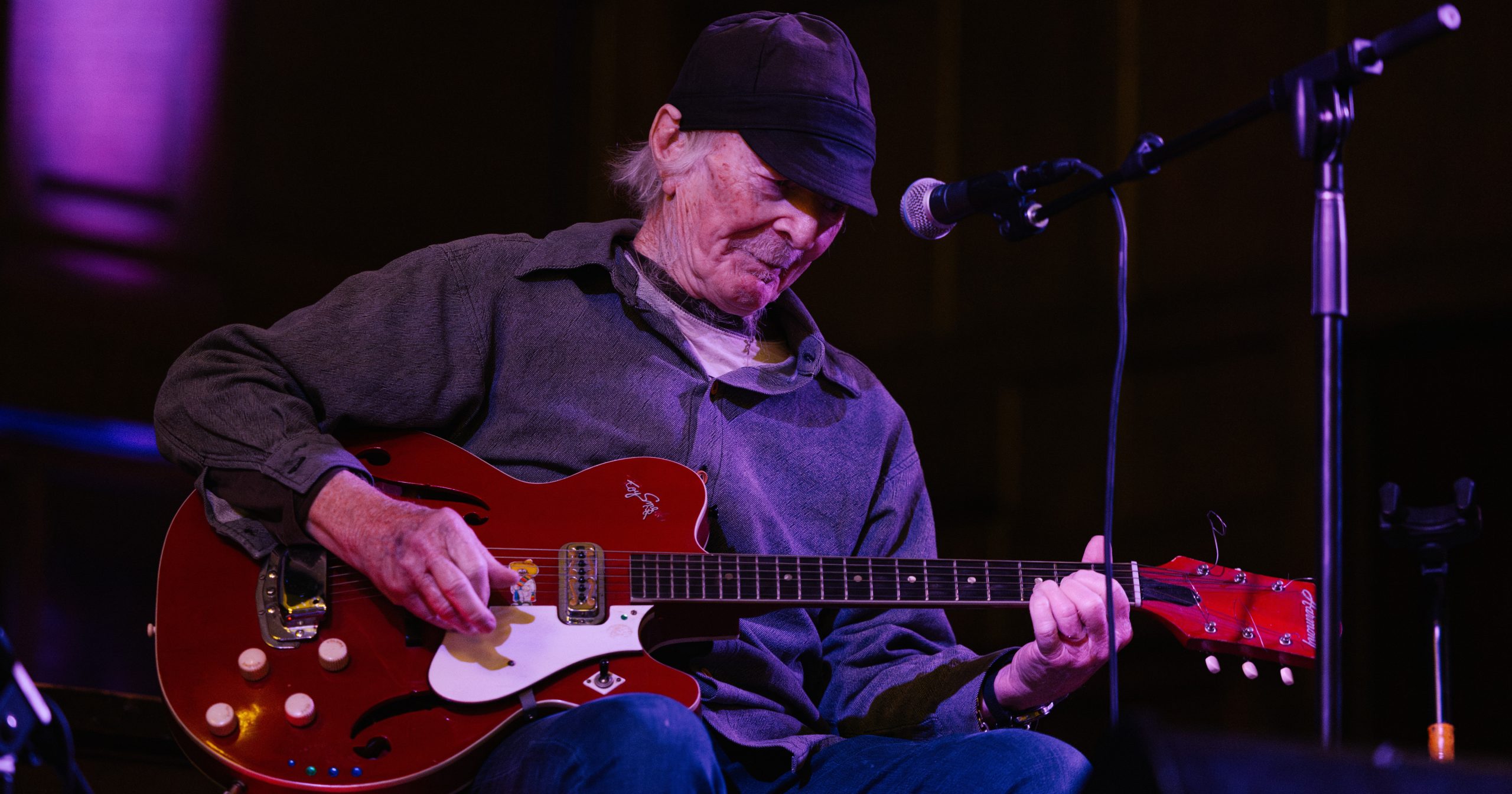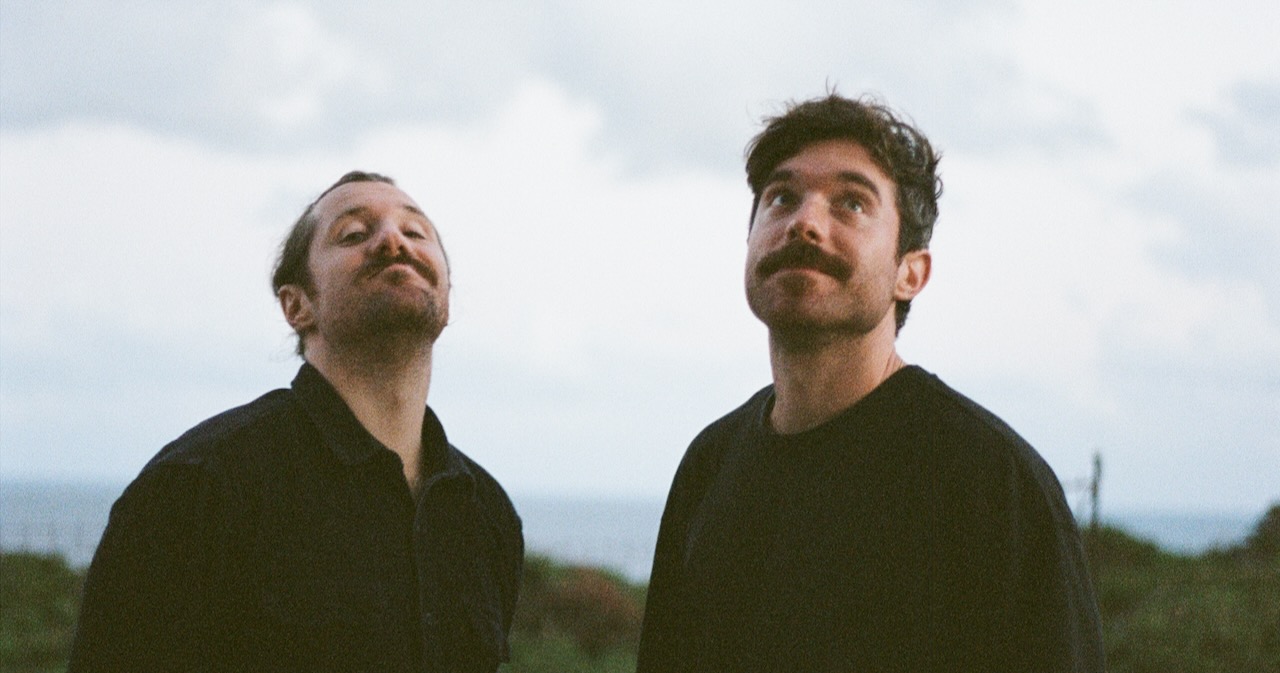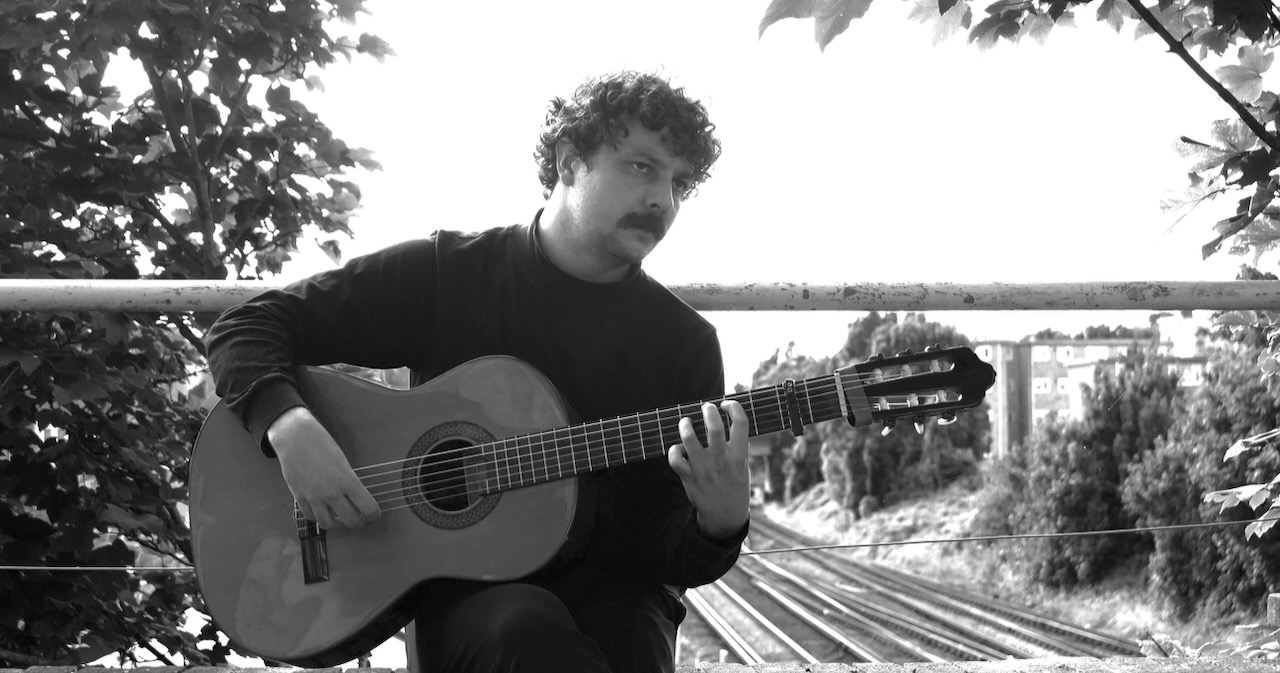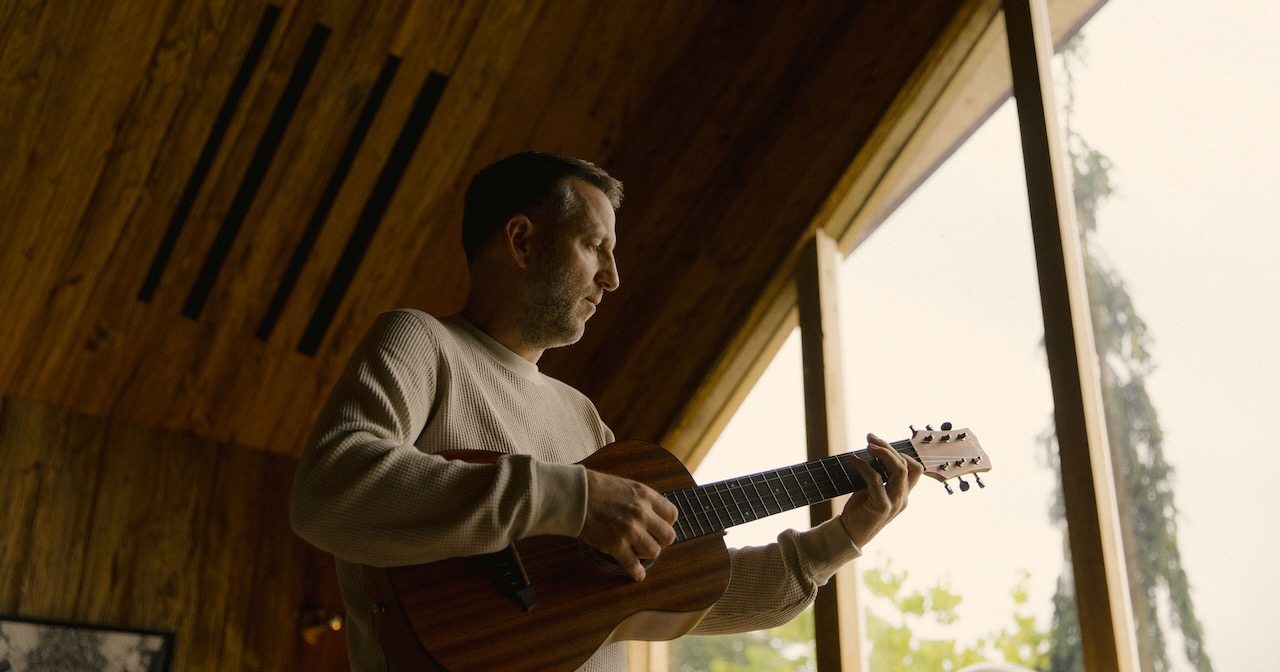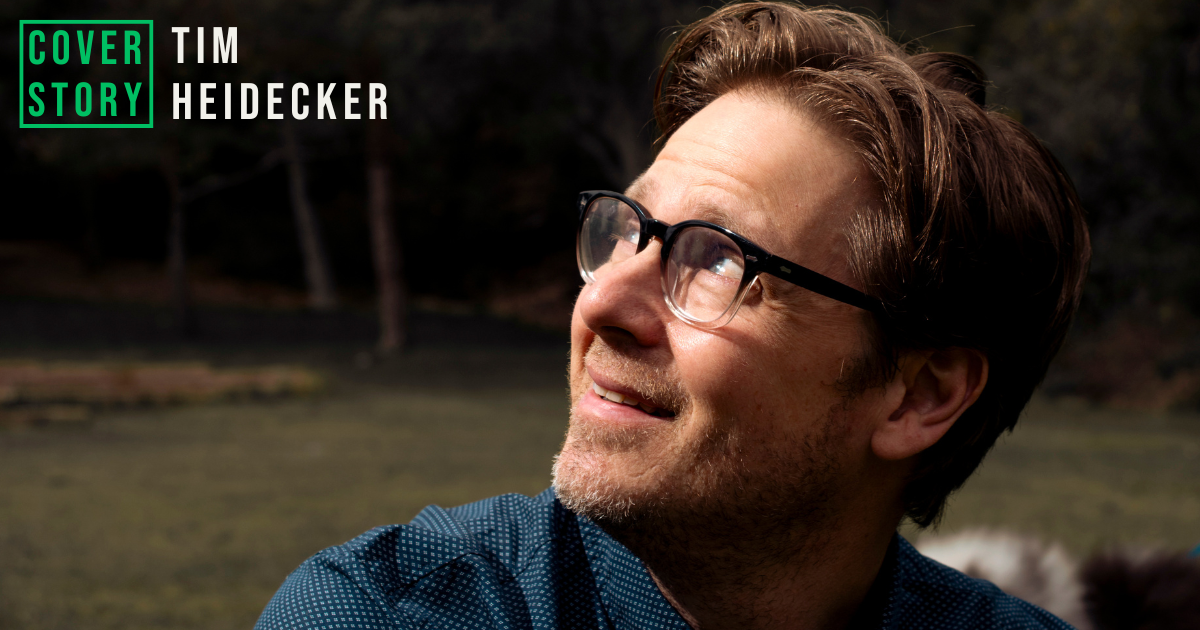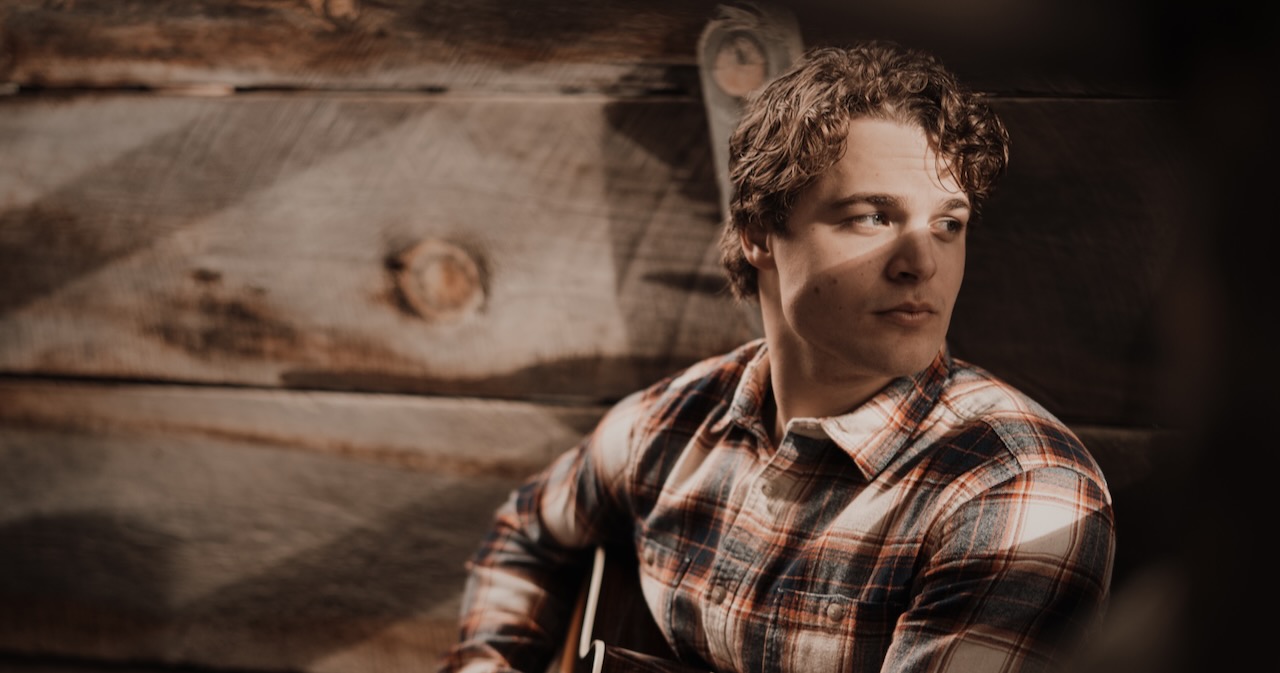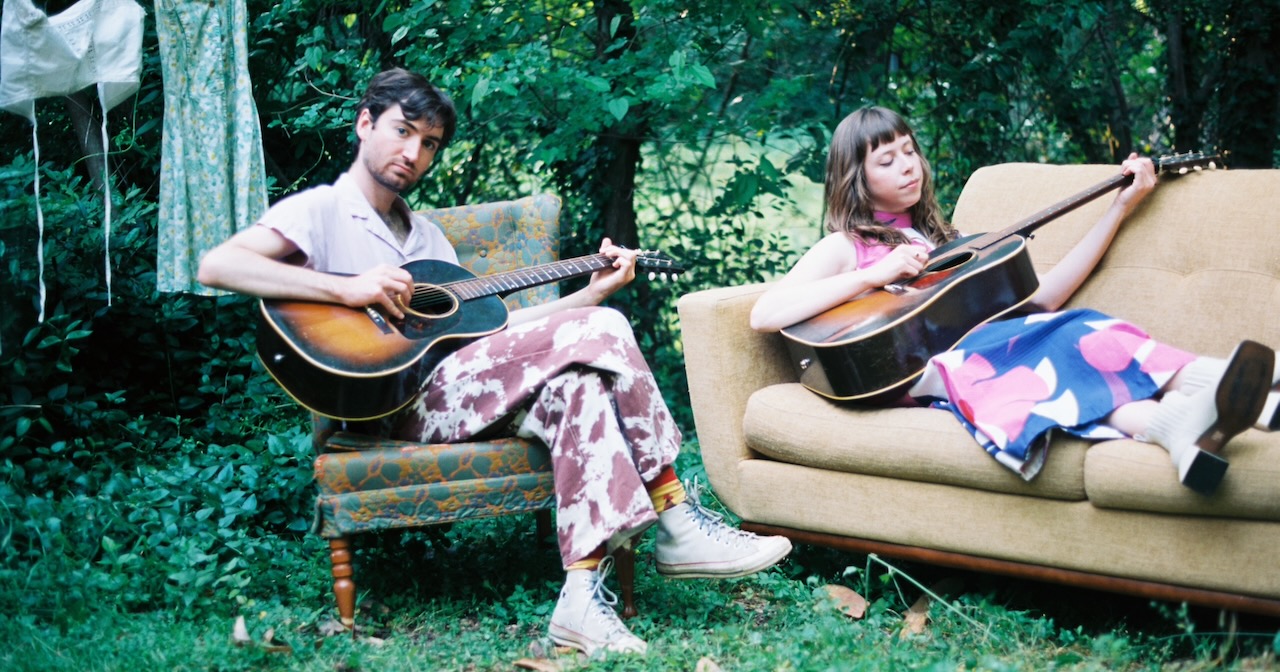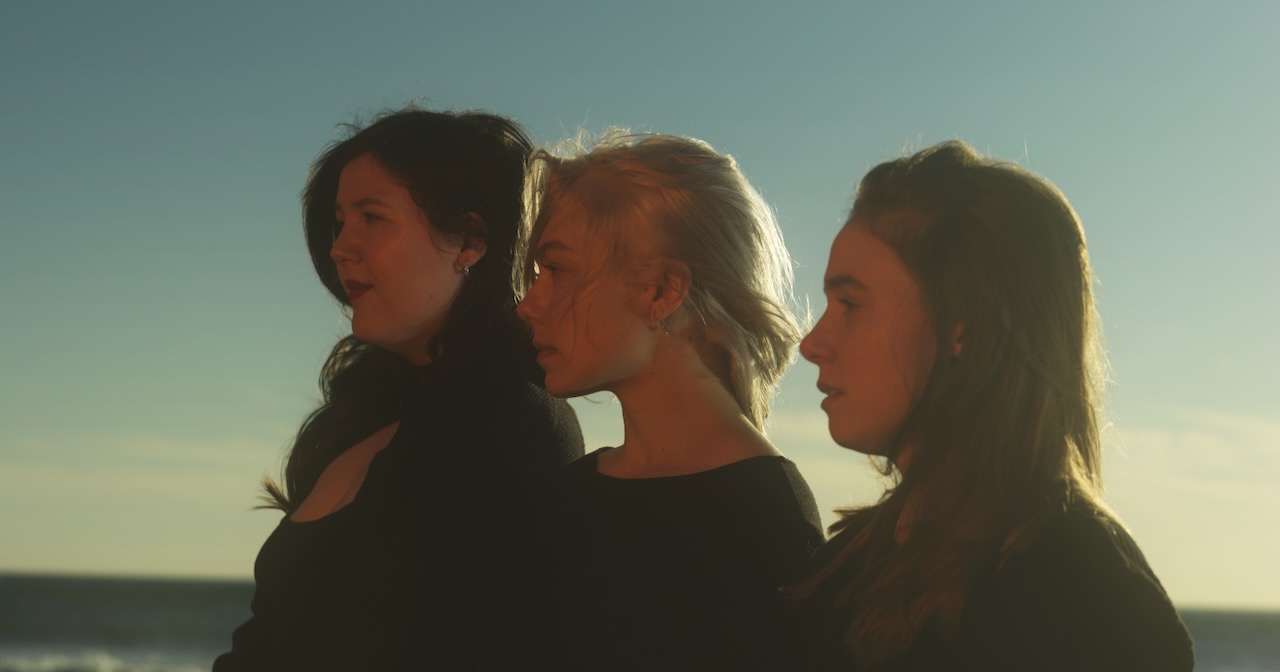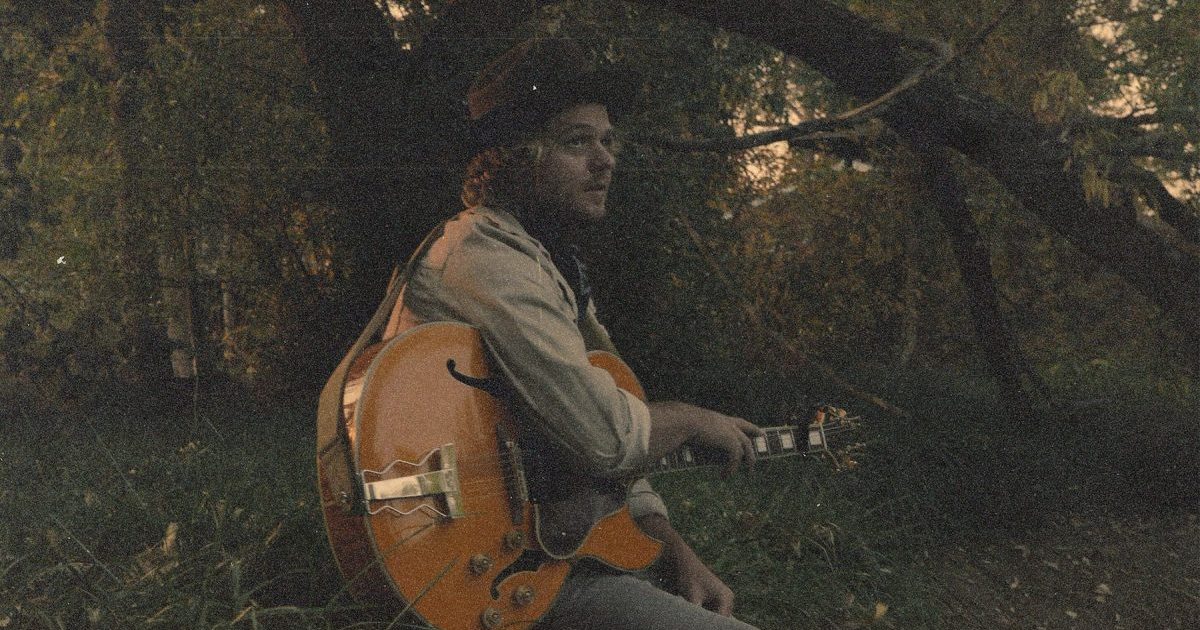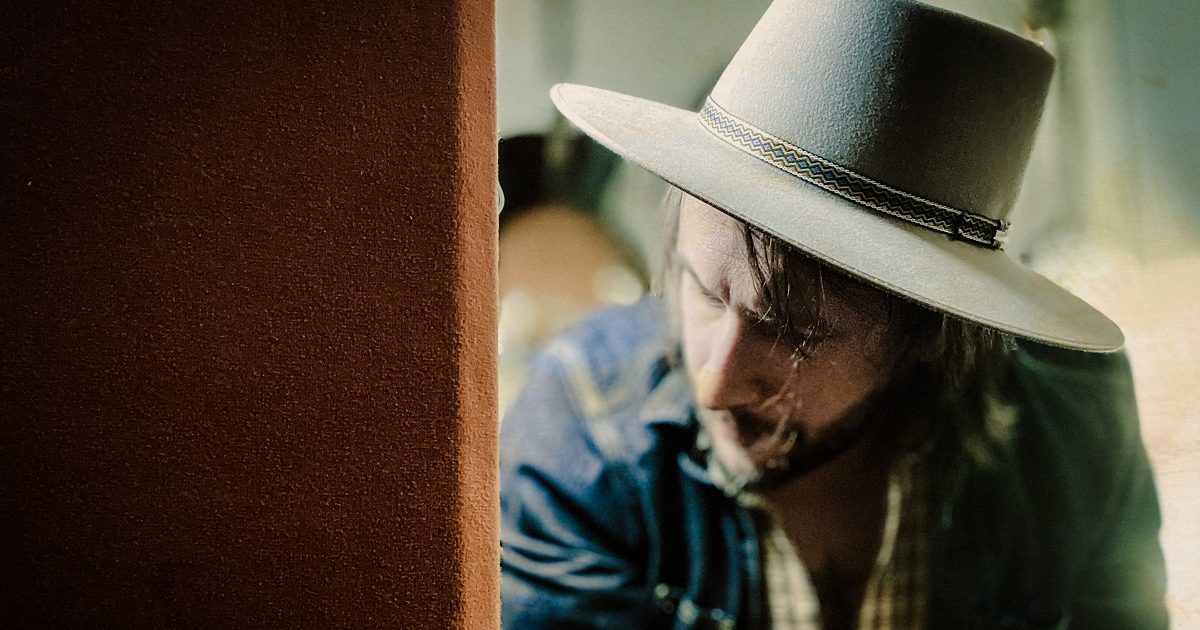(Editor’s Note: Thanks to our friends at Big Ears Festival, held at the end of March in Knoxville, Tennessee, we’re able to share these photos of revered folk icon Michael Hurley taken during what the world would later realize were two of his final performances, captured shortly before he passed on April 1, 2025.
To honor Hurley’s incredible legacy and his indelible impact on roots music, we’ve paired the photographs from Big Ears with a heartfelt remembrance by longtime Hurley acolyte and BGS contributor Dana Yewbank.
Our hearts go out to Michael Hurley’s friends, family, loved ones, and collaborators as we all grieve this humble-yet-towering figure in our corner of the music world; our gratitude goes out to Big Ears for sharing these intimate and lovely time capsule photographs.)
I first encountered Michael Hurley – the influential singer-songwriter who recently passed at the age of 83 – in a room painted like a 1960s rendering of a time machine. Big black-and-white spirals looped around the floor of the stage, awash in a moody, pink glow.
The show was at the Woodland Theater in Seattle, Washington, in 2018. I was there with friends – a ragtag group of fellow musicians who’d all been inspired by Hurley’s music in one way or another. My friend Bobby wore a shirt from Oakland’s Burger Boogaloo festival, which rings like the name of a Michael Hurley song that never was.
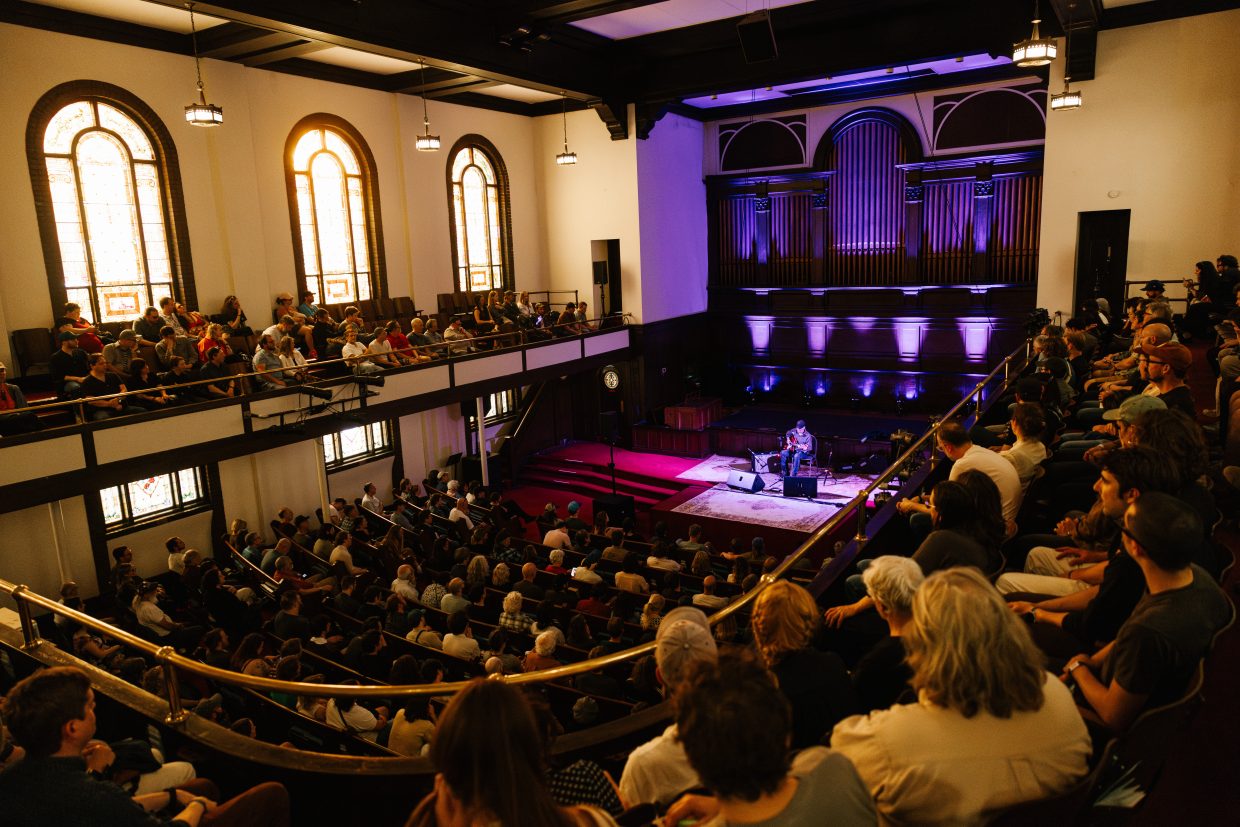
We got there early. In a performance space the size of a small café, Hurley was sitting in the corner next to the stage, quietly playing a worn piano. My friends and I exchanged looks of mild wonder, realizing we had walked in on something unexpectedly intimate. Quietly finding seats among the folding chairs, we soaked in the scene as the room filled up. Throughout the night, we interacted with Hurley in passing as if we were all just milling about someone’s living room. He attentively watched all the opening sets. Bobby showed him where the bathroom was. Hurley never acted like a living Americana legend, even though he was one.
Raised in Bucks County, Pennsylvania, and an eventual cultural fixture of Astoria, Oregon, Michael Hurley wrote and recorded surreal, folk-esque blues and Americana songs across seven decades. He also made comics, self-published several art zines, and made an unspeakable impression on the broad world of American folk music. He continued to perform up until his death, which came suddenly the day after his final performance. Michael Hurley spent his last evening on earth playing his timeless, effervescent songs at the AyurPrana Listening Room in Asheville, North Carolina.
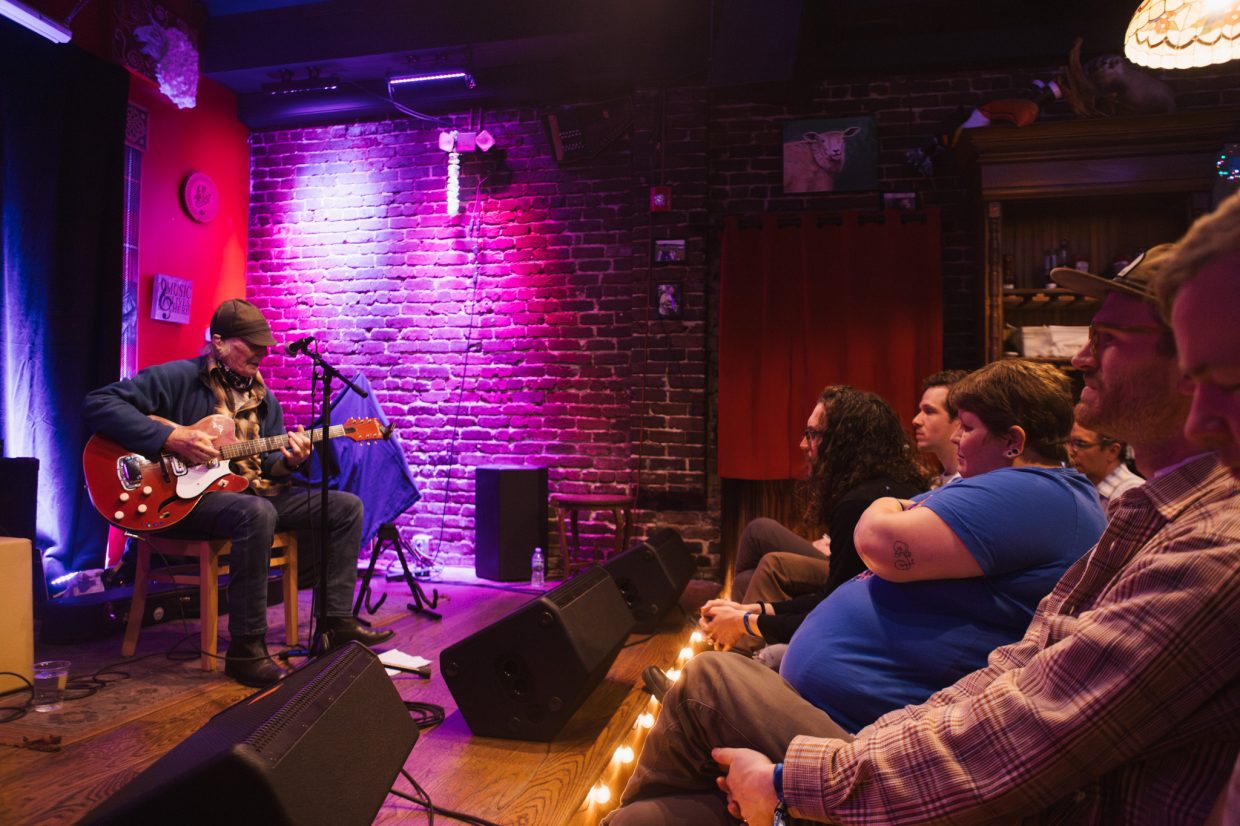
My doorway into the world of Michael Hurley was First Songs, a lo-fi collection of recordings published by Folkways in 1963. The songs on that album have a subtle, somber quality that’s harder to find on Hurley’s later, more jovial records. Listening, it feels like taking a long, slow walk through a deep forest at dusk. Less sunshine and laughter than Have Moicy! or Long Journey, but as a sad, confused 20-something, the mist and mystery of First Songs drew me in. “Animal Song” will always be the sound of being 24, reluctantly living back in my small Northwestern hometown, not far from the place Hurley would eventually call home.
But melancholia is far from what Michael Hurley became known for. Instead, his music is beloved for its surrealism, lightheartedness, and humor. Hurley sang about aliens, ghosts, werewolves, and potatoes. His songs abound with clever turns of phrase and humble imperfection, offering a sort of unselfconscious freedom to listener and musician alike.
That night at the show in Seattle, a 76-year-old Hurley played for an impressive two-and-a-half hours, never seeming to lose steam. He must have played through at least 50 songs by the end of the night, which doesn’t even touch the several hundred he wrote and recorded throughout his life.

Despite being called the “godfather of freak folk,” Michael Hurley never fancied himself a folk musician. Most of his influences fit squarely in the world of jazz and blues: Lead Belly, Lightning Hopkins, Fats Waller. He even cited country songwriters like Hank Williams, but rarely any notable folk artists. His eclectic influences make sense: Hurley’s songs have an unpredictable liveliness to them. They jump and wander, following a path seemingly guided by Hurley’s creative intuition alone.
But when it came to how he approached his life and career, Hurley lived fully into the folk tradition. He made his own album art, released some of his own records, and toured with zero frills. He also had a salt-of-the-earth political ethos and didn’t shy away from using music as activism. In 2014, Hurley assembled a compilation of “anti-Monsanto songs” and released them for free on Bandcamp.
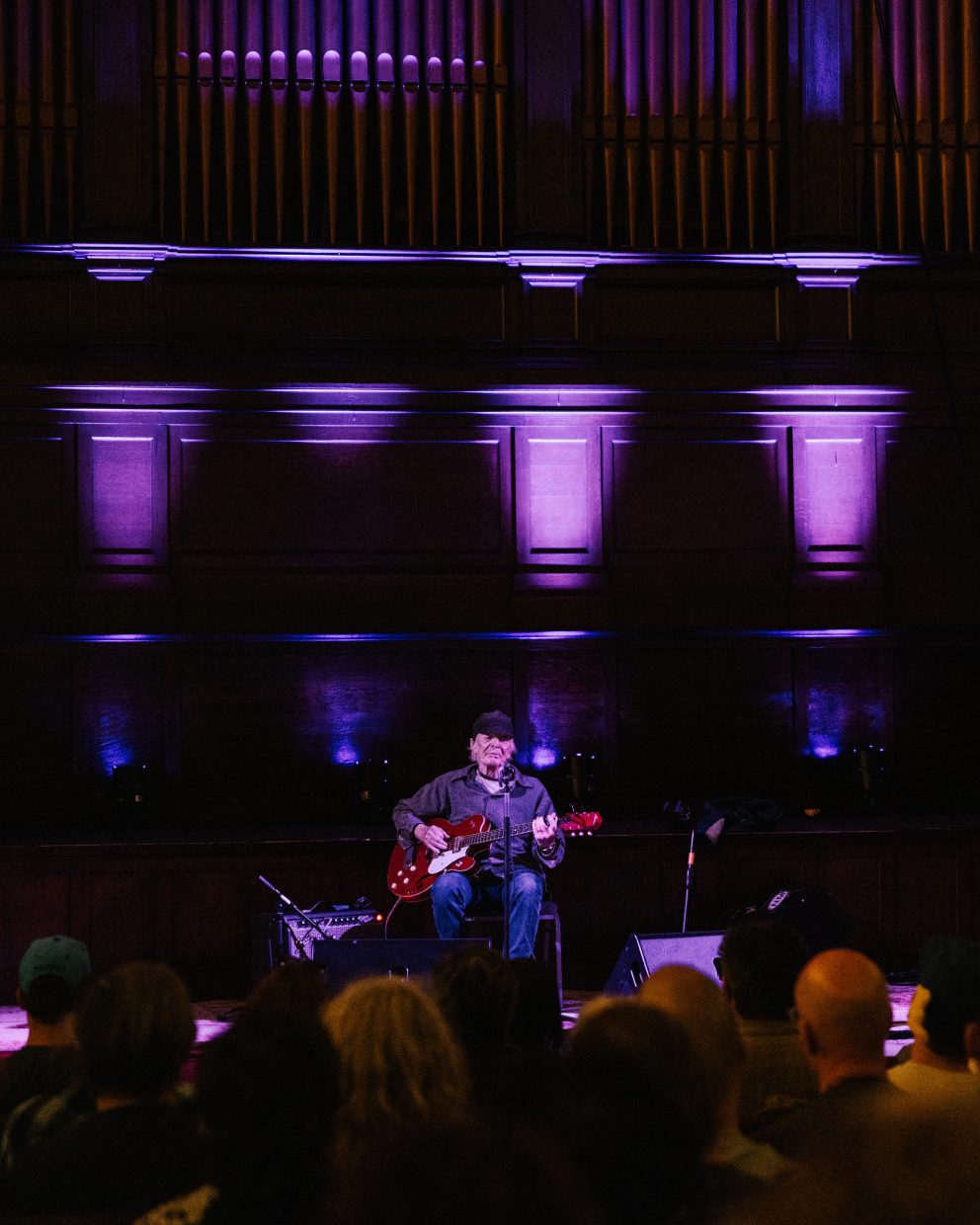
Hurley (or Elwood Snock, as he liked being called) was a musician of the people, only ever taking himself just seriously enough, unafraid of welcoming play and spontaneity into his work. His legacy has a lot to teach us about just how essential these qualities are to the creative process — because if making art isn’t a form of play, then what is it?
That unbridled, unbothered element makes Hurley’s music deeply comforting and grounding. It roils and pops like a low fire you can warm yourself by. It’s trustworthy and safe, emerging from the endless present moment, bubbling up like a fountain from which we can all drink.
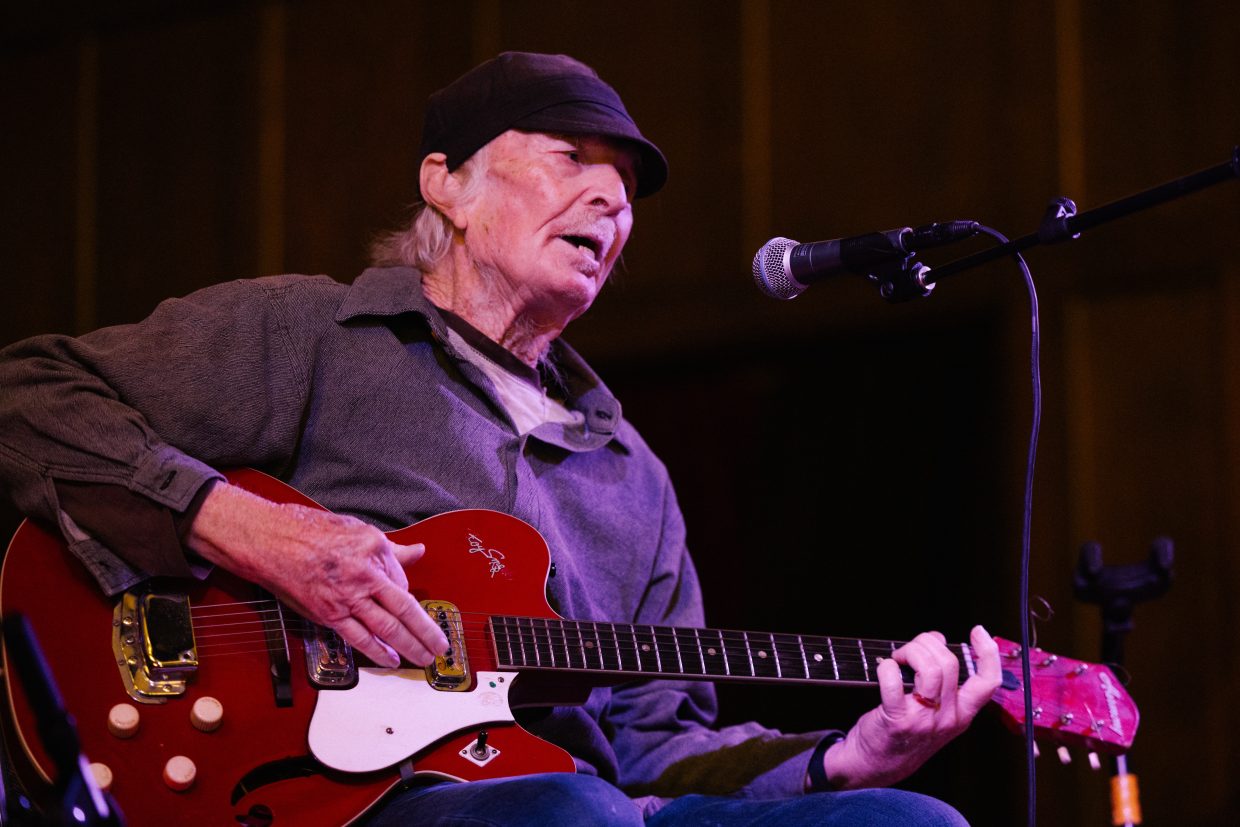
Honey, honey, honey,
have you ever blowed bubbles
underwater when you’re feeling bad?
You let your lips begin a-buzzin’
the bubbles rush up like mad.
Right there you’ve got somethin’
to help you out
when you ain’t got nothin’
to brag about.
– from “Driving Wheel,” Sweet Moicy! (1976)
Hurley frequently collaborated with other artists – from his Unholy Modal Rounders to Marisa Anderson and Kassi Valazza – and he continued to make new connections well into his final years. Adrianne Lenker, who counted Hurley as a friend, recently credited him as one of the reasons Big Thief became a band, in a post memorializing Hurley on Instagram.
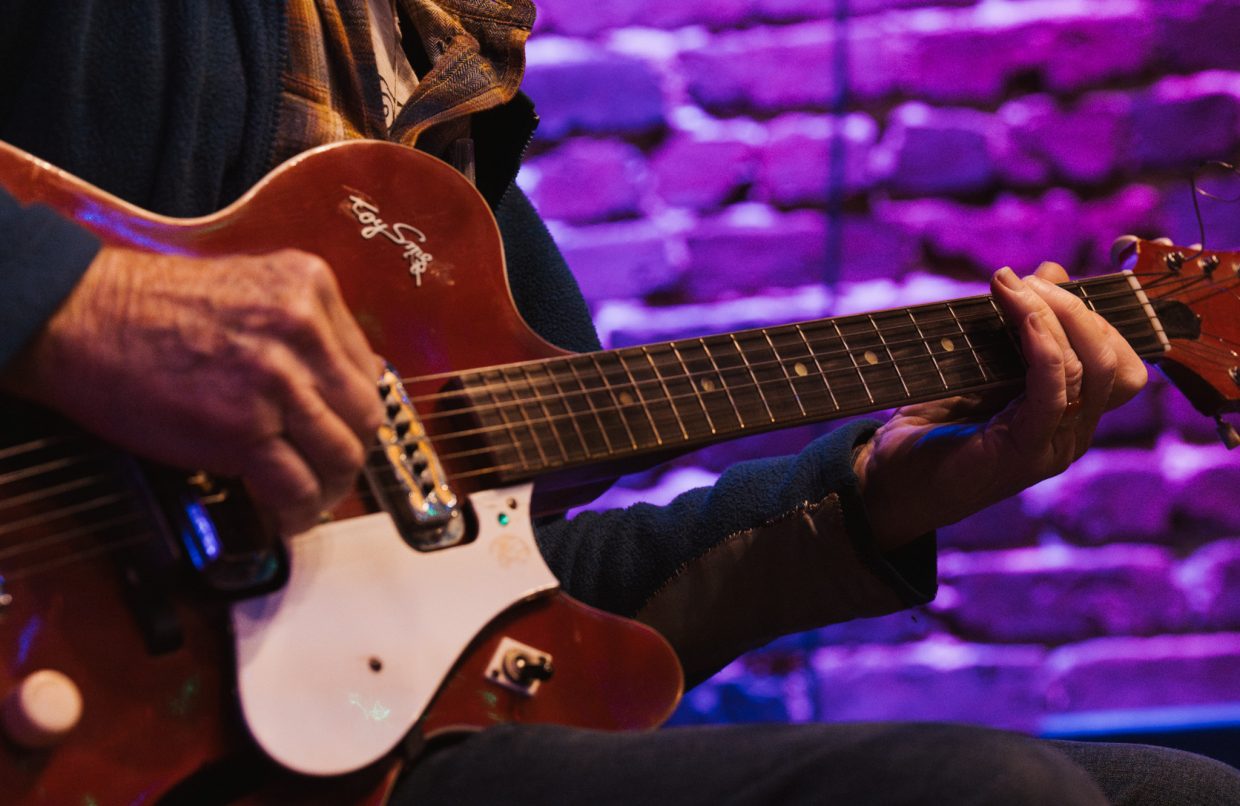
Infinite rivulets flow out from Snock’s work, watering seeds of creativity wherever they go, rippling and rolling over the landscape much like Hurley did – from Jersey City to Vermont to Astoria.
Michael Hurley passed on April Fool’s Day, which is painfully fitting. He loved a good joke, taking things that might otherwise feel heavy and heartbreaking and peppering them with levity and brightness. Now, in his absence, we can let his songs buoy us through dark times, of which there are too many, and laugh alongside us in the light.
All photos courtesy of Big Ears, shot by Joeleen Hubbard and Andy Feliu as credited. Lead Image: Andy Feliu.
